January 7, 2023
What is an appraisal? The procedure of writing an appraisal consists of an investigation which forms an opinion of value. The appraiser must use a number of "approaches," typically three, to arrive at the estimation of worth. One of the processes in use is the Cost Approach, which is what it would cost to restore the improvements to the house, minus age and physical deterioration, plus the land value. Easily the most common approach in figuring the value of a home is the Sales Comparison Approach which involves concluding a comparison to comparable houses nearby. The Sales Comparison Approach is normally the most definitive and best indicator of cost for a home. The Income Approach is primarily used for finding the worth of income-producing properties based on what an investor would pay based on the amount of capital a property produce. What does an appraiser do? An appraiser offers a professional, unbiased opinion of market value, to be used in making real estate decisions. Appraisers display their formal investigation in appraisal reports. There are a lot of reasons to purchase an appraisal from Peerless Appraisals with the usual reason being real estate and mortgage transactions. A few other reasons for purchasing a report include: To get a loan. To lower your property taxes. To show the replacement cost of Primary Mortgage Insurance. To contest inflated property taxes. If you need to take care of an estate. To give you a negotiating tool when purchasing real estate. To determine an honest property value when selling real estate. To defend your rights in a condemnation case. Government agencies such as the IRS need an appraisal on every house. If you ever find yourself in a lawsuit. What is the difference between an appraisal and a home inspection? Home inspectors do not estimate an opinion of value and are not appraisers. An inspection is a third-party evaluation of the available structure and electrical and mechanical systems of a home, from the roof to the bottom. Usually, a home inspection report will discuss the amenities and the requirements of the house: air conditioning (weather permitting), electrical services, the condition of the heating system, the plumbing; then the structural capacity of the home such as the attic, visible insulation, walls, floors, ceilings, windows, then the foundation, basement and visible structures. What is the difference between an Appraisal and a Comparative Market Analysis (CMA)? Simply, they share nothing in common. The CMA relies on local market trends. The appraisal depends on similar verifiable comparable sales. Area and building costs are also a priority in an appraisal. The CMA will provide a non-specific figure. Delivering a defensible and careful analysis, an appraisal will give a clear opinion of value. But the biggest difference is the person creating the report. A CMA is created by a real estate agent who may or may not have a true grasp of the market or valuation concepts. The appraisal is created by a licensed, certified professional who has made a career out of valuing properties. Further, the appraiser is an independent voice, with no vested interest in the value of a home, unlike the real estate agent, whose income is tied to the value of the home. What does the appraisal report contain? Each report must reflect a credible estimate of value and must identify the following: The client and other intended users. The intended use of the report. The purpose of the assignment. The type of value reported and the definition of the value reported. The effective date of the appraiser's opinions and conclusions. Relevant property characteristics, including location attributes, physical attributes, legal attributes, economic attributes, the real property interest valued, and Non real estate items included in the appraisal, such as personal property, including trade fixtures and intangible items. All known: easements, restrictions, encumbrances, leases, reservations, covenants, contracts, declarations, special assessments, ordinances, and other items of a similar nature. Division of interest, such as fractional interest, physical segment and partial holding. The scope of work used to complete the assignment. After completing the report, what assurance is there that the value indicated is valid? In communicating an appraisal report, each appraiser must ensure the following: That the information analysis utilized in the appraisal was appropriate. That significant errors of omission or commission were not committed individually or collectively. That appraisal services were not rendered in a careless or negligent manner. That a credible, supportable appraisal report was communicated. Most states require that real estate appraisers are state licensed or certified. The state licensed or certified appraiser is trained to render an unbiased opinion based upon extensive education and experience requirements. To become licensed or certified, appraisers must fulfill rigorous education and experience requirements. In addition, appraisers must abide by a strict industry code of ethics and comply with national standards of practice for real estate appraisal. The rules for developing an appraisal and reporting its results are insured by enforcement of the Uniform Standards of Professional Appraisal Practice (USPAP). How are appraisers certified? Regulations regarding licensing and certification of Real Estate Appraisers vary from state to state. However, licensing and certification is most often associated with many hours of coursework, tests and practical experience. Once an appraiser is licensed, he or she is required to take continuing education courses in order to keep the license current. Who do appraisers work for? Typically, appraisers are employed by lenders to estimate the value of real estate involved in a loan transaction. Appraisers also provide opinions in litigation cases, tax matters and investment decisions. Where does an appraiser get the information used to estimate value? Gathering data is one of the primary roles of an appraiser. Data can be divided into Specific and General. Specific data is gathered from the home itself. Location, condition, amenities, size and other specific data are gathered by the appraiser during an inspection. General data is gathered from a number of sources. Local Multiple Listing Services (MLS) provide data on recently sold homes that might be used as comparables. Tax records and other public documents verify actual sales prices in a market. Flood zone data is gathered from FEMA data outlets, such as Metro Appraisals' InterFlood product. And most importantly, the appraiser gathers general data from his or her past experience in creating appraisals for other properties in the same market. Why do I need a professional appraisal? Anytime the value of your home or other real property is being used to make a significant financial decision, an appraisal helps. If you're selling your home, an appraisal helps you set the most appropriate value. If you're buying, it makes sure you don't overpay. If you're engaged in an estate settlement or divorce, it ensures that property is divided fairly. A home is often the single, largest financial asset anybody owns. Knowing its true value means you can the right financial decisions. What exactly is PMI and how can I get rid of it? PMI stands for Private Mortgage Insurance. It insures a lender against loss on homes purchased with a down-payment of less than 20%. Once equity in the home reaches 20% you can eliminate the PMI and start saving immediately. How do I get ready for the appraiser? The first step in most appraisals is the home inspection. During this process, the appraiser will come to your home and measure it, determine the layout of the rooms inside, confirm all aspects of the home's general condition, and take several photos of your house for inclusion in the report. The best thing you can do to help is make sure the appraiser has easy access to the exterior of the house. Trim any bushes and move any items that would make it difficult to measure the structure. On the inside, make sure that the appraiser can easily access items like furnaces and water heaters. The following Items, if available, will help your appraiser to provide a more accurate appraisal in a shorter period of time: A survey of the house and property. A deed or title report showing the legal description. A recent tax bill. A list of personal property to be sold with the house if applicable. A copy of the original plans. What is "Market Value?" Market value or fair market value is the most probable price that a property should bring (will sell for) in a competitive and open market under all conditions requisite to a fair sale, the buyer and seller, each acting prudently, knowledgeably and assuming the price is not affected by undue stimulus. Implicit in this definition is the consummation of a sale as of a specified date and the passing of title from seller to buyer under conditions whereby: (1) buyer and seller are typically motivated; (2) both parties are well informed or well advised; (3) a reasonable time is allowed for exposure to the open market; (4) payment is made in terms of cash in U.S. dollars or in terms of financial arrangements comparable thereto; and (5) the price represents the normal consideration for the property sold unaffected by special or creative financing or sales concessions granted by anyone associated with the sale. Who Actually Owns the Appraisal Report? In most real estate transactions, the appraisal is ordered by the lender. While the home buyer pays for the report as part of the closing costs, the lender retains the right to use the report or any information contained within. The home buyer is entitled to a copy of the report - it's usually included with all of the other closing documents - but is not entitled to use the report for any other purpose without permission from the lender. The exception to this rule is when a home owner engages an appraiser directly. In these cases, the appraiser may stipulate how the appraisal can be used; for PMI removal, or estate planning or tax challenges, for example. If not stipulated otherwise, the home owner can use the appraisal for any purpose. Which home renovations add the most to the price? Peerless Appraisals, LLC is always willing to address any questions you might have about appraisals in San Antonio and Bexar County. Contact us today to talk about how we can help you with your specific valuation problems.











